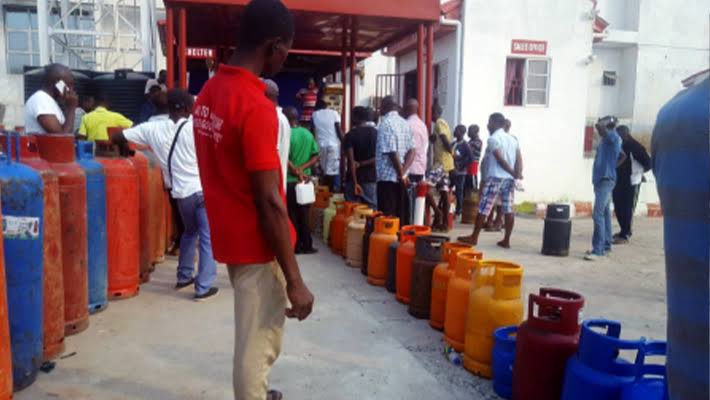Cost Of Cooking Gas Rises To N1,500/kg

As Nigerians face the rising cost of petrol, the price of Liquefied Petroleum Gas (LPG), commonly used for cooking, has also surged to N1,500 per kilogram. According to Suresh Kumar, Managing Director and CEO of NIPCO Plc, the price hike reflects Nigeria’s heavy reliance on imported LPG, with over 60% of the supply coming from overseas. He expressed optimism that the establishment of domestic refineries, such as the Dangote Refinery, would drive down prices by boosting local production.
A market survey revealed that LPG prices have escalated sharply in recent months, with a 12.5kg cylinder costing as much as N17,000 in parts of Abuja, representing a 41.6% increase from the N12,000 price seen just three months ago. In Lagos and Ogun States, similar price spikes were observed, with cooking gas reaching N1,500/kg in some outlets. This surge in prices has raised concerns among consumers, many of whom rely on LPG for daily cooking.
Despite efforts by the Minister of State for Petroleum Resources (Gas), Ekperikpe Ekpo, to bring down the cost of cooking gas, prices have continued to rise. Kumar, speaking at the Nigerian Association of Liquefied Petroleum Gas Marketers conference, highlighted the need for increased local production to alleviate the pressure caused by imports. He urged the Federal Government to encourage companies like Chevron to convert more propane into butane, which is more suitable for domestic use.
Kumar explained that the ongoing reliance on imported LPG has exposed Nigeria to foreign exchange fluctuations and international market dynamics, driving up prices. However, with the local refineries now sourcing crude oil in naira, he expects the volume of domestically produced LPG to increase, leading to a reduction in prices.
NIPCO Plc, which entered the LPG market in 2008, has significantly expanded its operations to ensure greater access to cooking gas. The company’s Apapa facility has grown from a capacity of 5,000 metric tonnes to over 20,000 metric tonnes, and it has deployed tankers and stations nationwide to support households’ access to LPG. Despite the growth, Kumar noted that less than 60% of Nigeria’s 200 million population currently uses LPG, leaving substantial room for expansion.
Kumar also emphasized the need for substantial investment in gas infrastructure, including pipelines, storage, and processing facilities, to support increased local production and reduce reliance on imports. He believes that as more players enter the gas processing sector, the market will stabilize, and the high cost of LPG will eventually decrease.



